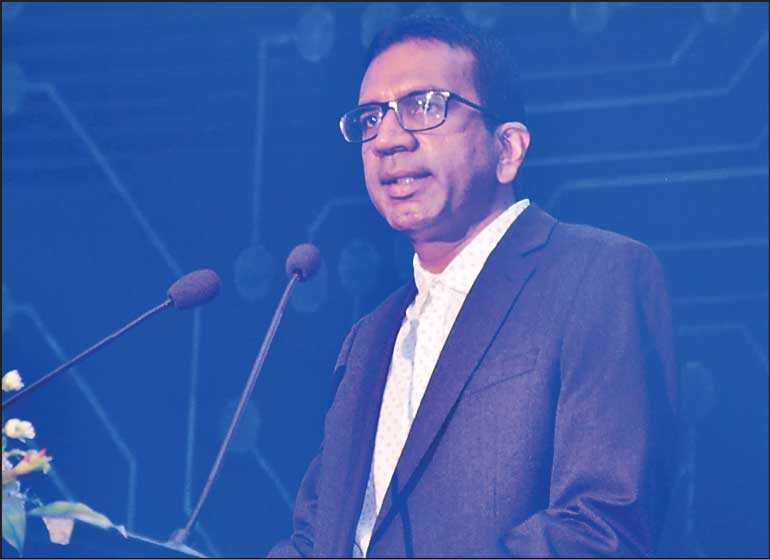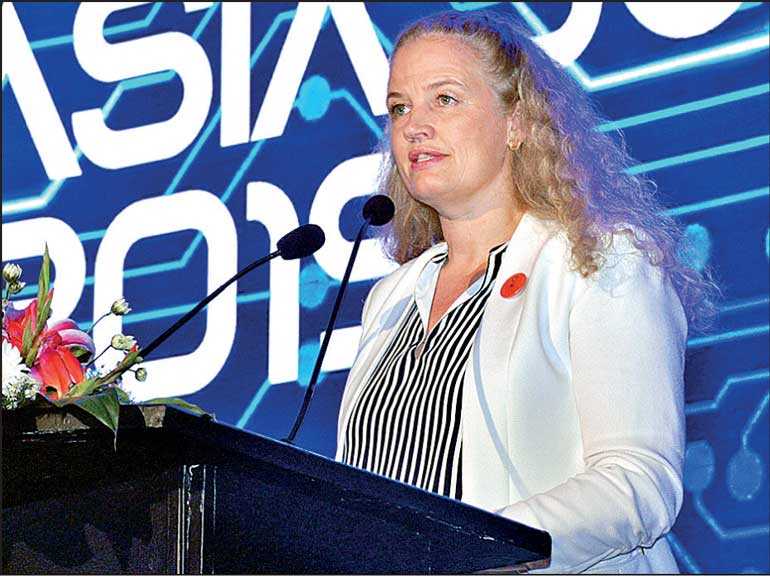Friday Feb 13, 2026
Friday Feb 13, 2026
Friday, 8 November 2019 00:00 - - {{hitsCtrl.values.hits}}


By Divya Thotawatte
In an effort to embrace Artificial Intelligence (AI), Sri Lanka should create a national strategy around it to reskill the country’s workforce whereby they could build capacity and add more value to their products and services, said an expert recently.
Delivering a speech at the inauguration of the Sri Lanka Association for Software and Services Companies (SLASSCOM) Artificial Intelligence Asia Summit 2019, held for the second consecutive year, SLASSCOM Chairman Ranil Rajapaksa said that creating awareness and building capacity in terms of AI-related technology was important for the development of the country, which was also the prime objective of the summit. A national policy on AI could help the growth of industries through the reskilling and retraining the existing Sri Lankan workforce.
Rajapaksa stated, “It is important for the country to have a framework policy/strategy around AI going forward. This strategy should incorporate a process of building capacity and skills development. It is not just developing new capacities or skills, but also retraining and reskilling in the existing workforce; because when we things like automation require reskilling the country’s workforce. The policy should also revolve around ethics, security, promotion and the adoption of AI across governments and across industries. That is something we need to pay attention to.”
He said that building and expanding in capacity and knowledge was essential since it was one of the key factors driving Sri Lanka as a hub for knowledge and innovation.
“At the moment we’re doing a lot of work in terms of software development, services and through that we have grown the industry to a $ 1.2 billion industry in Sri Lanka. In order to take it to the next level this year, we have to also look at moving up the value chain. It’s not just doing regular software development and services but also and embracing these new kinds of technologies and trends and building capacity. Through that, we can have high value and bring revenue to the industry and take the country forward.” Rajapaksa explained the country needs prepare for and look at performing well in the sector that it would complement the innovations taking place in the current world. He said the universities should focus on and embrace this idea. He stressed, “Educational institutes together with other industries, the government and other agencies should look at how we can enhance education and skill development in the field of technology, especially the technologies related to AI. That is another thing we’re focused about.”
The Norwegian Ambassador to Sri Lanka Trine Jøranli Eskedal also spoke during the event. She explained how in Norway, technology, especially related to artificial intelligence has a huge impact on developments in the society. It had the potential to find new tools to solve challenges in society, improve the public sector, trade and industries of the country. Norway also faced challenges regarding ethics and protection of personal data in the use of AI. Creating a new framework had helped to overcome the problems while education, research and innovation had contributed in developing further.
Pix by Lasantha Kumara